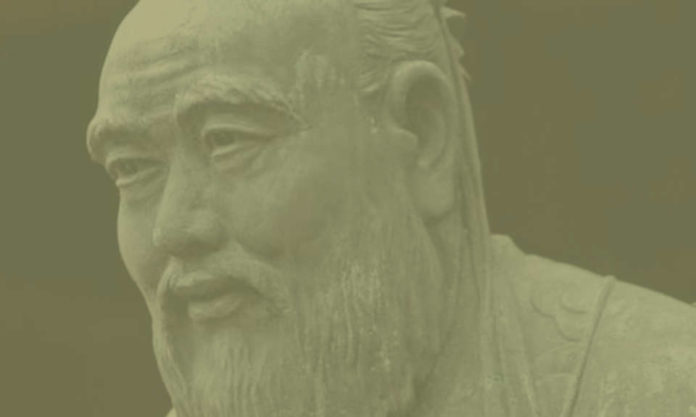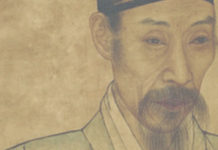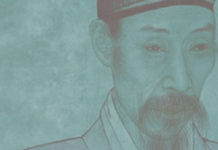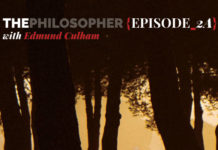Previously: “My poor cherries,” Kongzi moaned, then hesitating a moment. “And why would the neighbours want to see the lake, they have nothing to contemplate. ‘Tian-a’, they couldn’t even see the Dao if it was before their noses.”
While it was thought following a master could help people seek and find the true Dao, it was accepted that they most likely would not have the ability to ascend to the level of their teacher. Instead, those of lesser ability were to find and fulfill their societal role. In this sense, Confucianism preserved a hierarchy of sages, those enlightened few who passed on their rule-bound teachings without regard for another’s abilities. Conversely, the Mohist contrasting of actions with that of a model morality necessarily implies a self-reflective approach, which can be individually advanced.
Now Mozi moves his wiry frame closer, balancing nimbly on the ridged corner of the pavilion. “How can they [Kongzi’s neighbours] be expected to find the path to the Dao if it is obscured from them? If your rules, your trees, leave them forever in the shadows?”, he muses. “I’ve thought it through all quite clearly; they’re much more likely to accept your teachings if you allow them a little more light to read your books.”
“Oh, spare me, won’t you come down and show me some respect, man”, Kongzi, surprisingly animated, shifts from foot to foot in agitation, as you both crane your necks upwards. “I teach them as much as they can learn and they show me due respect. Come to think of it, a little more would be nice. It’s a hopeless task.”
Inclusivity is paramount in Mohist thought; their ideal of “jianai” (impartial love; 兼爱) for others evidences of radical differences to the Confucian ethic.
Jianai necessarily meant extending your “love” or “care” to your family, but also crucially to your neighbours, to other families and to all those you encounter in life. A basis for this principle was the concept of the “inclusive”, to include others in your thoughts so as to instruct your actions, bringing about beneficial behaviour and thus being a source for good. The “exclusive”, on the other hand, i.e. self-interest, putting your family before others etc., was believed to bring about bad consequences. In this way, the Confucian devices of attaining self-enlightenment (which few could achieve), reverence to a master, their rules and the foundational belief in filial piety, and of putting one’s family first, have nothing of the inclusivity for which the Mohists strove.
But what was this great arbiter or standard that Mohists proclaimed, which allowed individuals a model to judge their actions upon? Simply put, they saw the “intention” of Heaven as providing for an objective moral standard.
Mozi wiped his mouth with the back of his hand, an elaborate gesture, “The problem with you, Kongzi, is you’re too into this sagehood crap. I mean, look at you sitting all day in that chair of yours, thinking you’ve solved it all and fobbing everyone else off with a few half-baked rules”. Then, in a single motion, he swung himself over the edge of the pavilion landing not far from where Kongzi and you stand. The great master looks as though he has been slapped in the face, it being ashen, his lips pursed. Mozi stands motionless, then with a jaunty laugh says, “Why do they need you anyway, your followers?”. And turning on his heal uttered, “Remember old chum, we’re all one under Heaven”, before disappearing into the nearby bushes.













